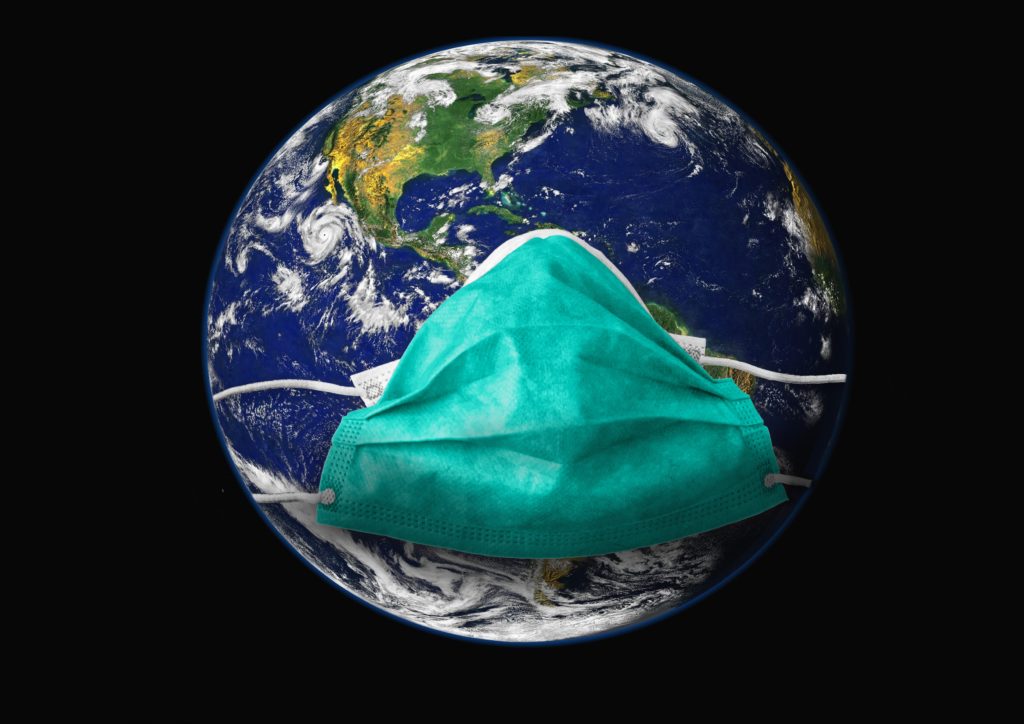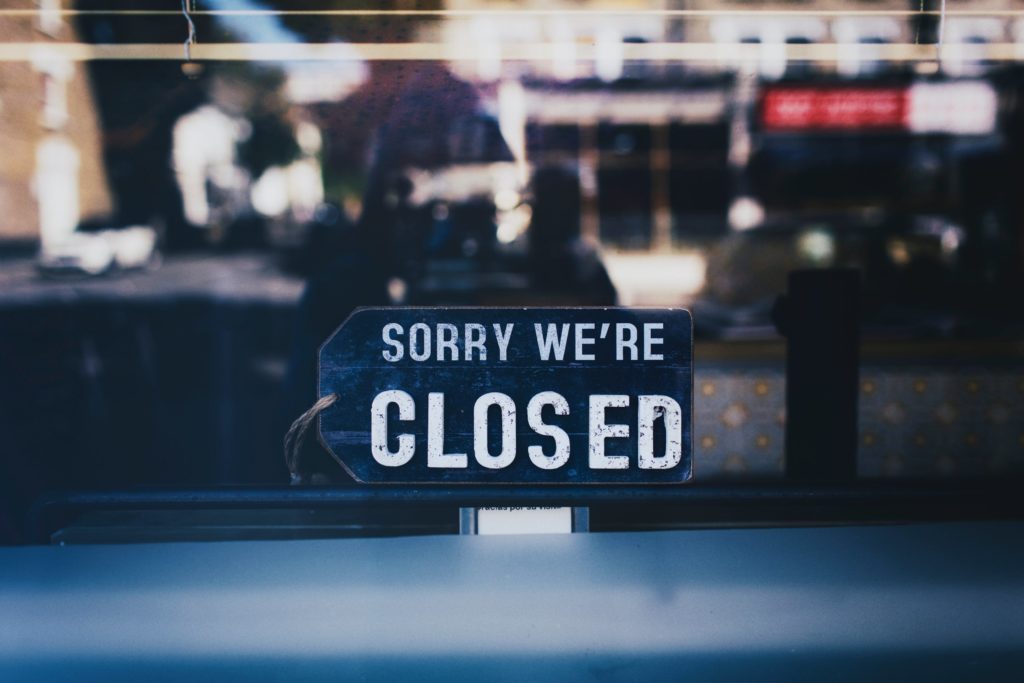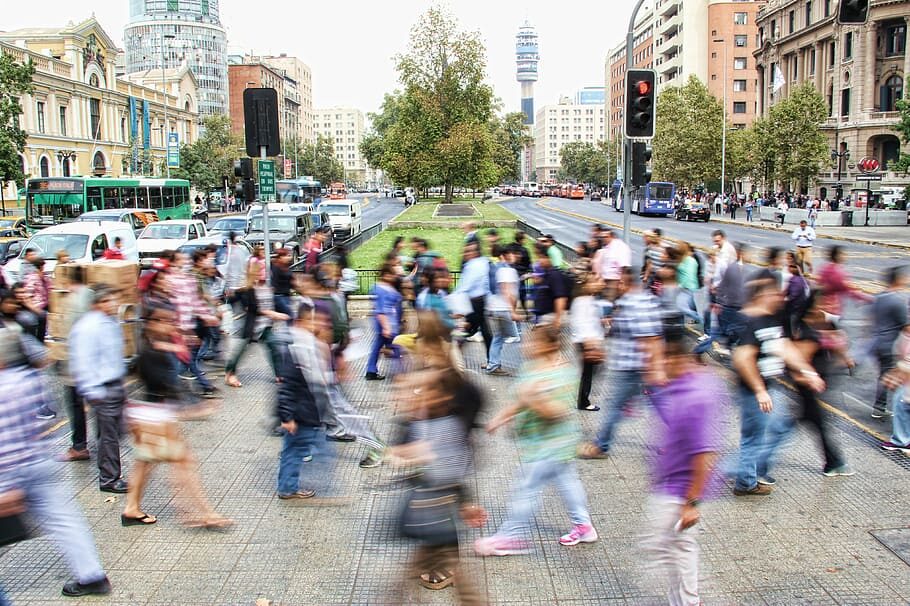Dr Ramla Shah, General Practitioner, London

The Covid-19 outbreak is undeniably one of the greatest public health challenges of our time. The UK recorded its first confirmed case of acute respiratory infection due to Covid-19 in January 2020.
This outbreak has changed our lives dramatically. Schools are shut across the country (UK), most businesses have closed their doors and people have been told to stay at home to prevent further spread of virus.
What is Covid-19?
At the end of December 2019, Chinese public health authorities reported several cases of an acute respiratory illness in Wuhan City, Hubei province. It was soon identified that this is caused by a novel coronavirus called Covid-19. It is related to the virus that caused the SARS outbreak in 2003. The Covid-19 virus is a new strain of coronavirus that has not previously been identified in humans.

Coronavirus can be transmitted to people from animals. Many of the early cases of Covid-19 were traced back to a large seafood and animal market in Wuhan in China. The virus is thought to have come from bats, possibly via an intermediary animal.
Covid-19 spread to several countries around the world in a short span of time. Italy, Spain and China are at top of the list, where several thousands of people lost their lives due to the disease. WHO (World Health Organization) confirmed the outbreak as a pandemic on 11 March 2020 (which means that multiple countries are seeing sustained transmission between people of an outbreak causing disease or death).

Coronavirus has so far (31 March) affected more than 178 countries across the world and caused loss of more than 37,000 lives. There are more than 780,000 confirmed cases across the world (BBC News website, accessed 31 March)
In the UK currently, 22,141 cases have been identified (GOV UK website, accessed 30 March) i.e. tested positive, though the actual number affected is estimated to be much larger. Unfortunately, 1,408 patients in the UK have died of this disease (GOV UK website, accessed 29 March)
The spread of Covid-19
Covid-19 is largely spread via (respiratory) droplets in the air. These droplets are typically expelled when a person infected with the illness coughs or sneezes.
These droplets quickly fall on surfaces as they are too heavy to hang in the air (this is considered to be due to the fact that coronavirus particles are surrounded by a fatty layer). Some lighter particles may remain suspended in the air.
It is suggested that a person can become infected by inhaling the virus if in close proximity of an infected person. Also, if you touch the contaminated surfaces and then touch your eyes, nose or mouth, it may cause infection.

Hence, the importance of washing hands with water and soap frequently can be understood. Coronavirus has also been detected in blood, faeces (stools) and urine of an infected person.
According to the New Scientist Journal, a project in Italy has also found many symptomless cases (patients who display no symptoms of disease). When everybody was tested in a town called Vò, Italy, one of the hardest hit in the country, 60% of people who tested positive were found to have no symptoms (therefore, it is important to practice strict hygiene measures).
You may have heard of “viral load”, which relates to the number of viral particles being carried by an infected individual and shed into their environment. If an infected person has a high viral load, they are more likely to infect other people because they may be shedding more virus particles.
In the case of Covid-19, it is not yet confirmed if a higher viral load can lead to more severe symptoms, however this may be a possibility.
Signs and symptoms of Covid 19
Signs and symptoms include:
– Fever
– Cough (new cough)
– Tiredness
– Runny nose
– Sore throat
– Shortness of breath or wheezing
– Chest pains
– Nasal congestion
– Body aches and pains
In the majority of patients affected by the illness, symptoms are mild (e.g. just a runny nose or a sore throat or a little cough) or they may have flu-like illness. Having said that, some patients may experience more significant symptoms, including shortness of breath or chest tightness/pain etc.
Some patients with Covid-19 may also experience:
– Loss of smell
– Loss of taste
– Loose stools
– Nausea/vomiting
It is important to remember that in those patients where the illness may not present itself with any symptoms, they are still infectious and can still spread the virus.
The question is, how do patients who have no symptoms – no cough or sneeze – spread this infection?
These persons can spread the disease by spitting, touching their mouths or noses and then a surface or possibly talking or with an occasional cough or sneeze. This is the reason why social isolation and hand washing is so important to prevent spread of disease as these patients with no symptoms may spread the disease unknowingly.
Incubation period & statistics of Covid-19
The incubation period refers to “the time between exposure to the virus and the appearance of the first symptoms.”
According to an article in BMJ (British Medical Journal):
– The median estimated incubation period for Covid-19 is five to six days (range 0-14 days)
– The median age of confirmed cases is around 59 years
– Initial data indicates that more than 80% of patients have no symptoms or mild disease and then recover, but about 15% may get severe disease including pneumonia
– Around 5% of patients may become critically unwell with septic shock (severe infection in blood leading to shock) and/or multi-organ failure (failure of body organs e.g. failure of kidneys) and/or respiratory failure (lungs fail to work, hence requiring ventilator support)
– The case fatality rate (death rate) is estimated to be approximately 2% overall, but ranges from 0.2% in people under 50 years to 14.8% in those over 80 years of age and is higher among those with chronic comorbid conditions
Reasons why Covid-19 can cause serious illness
Covid-19 is a rapidly spreading disease across the world because the transmission rates for this disease are higher e.g. as compared to those for SARS and flu.
As stated earlier, many people don’t show symptoms once infected with the virus, hence it may spread the infectious disease unknowingly. Due to these reasons, this illness spreads very rapidly and can infect a large number of people.
As well as this, complications of Covid-19 include pneumonia, respiratory (lungs) failure and organ failure, which may lead to death, especially in those who have co-morbidities or older patients or those with impaired immune system.
It is important to be aware that in some cases, young and usually fit and well persons developed complications from this illness and unfortunately lost their lives, however this is rare.
Diagnosis of Covid-19
At present, diagnosis is mostly done based on clinical signs and symptoms. If you have a new cough or fever, it is possible you may have Covid-19. Due to the limited availability of diagnostic test in the UK, only those patients who are quite unwell and being admitted to hospitals in the UK are currently being tested. Recently, frontline NHS staff in the UK are also being offered the test. It is expected that testing facilities will be available to a wider population in the future.
Treatment of Covid-19
Most people with Covid-19 do not need any specific treatment. Patients are advised to rest and isolate and take paracetamol if required (avoid ibuprofen, unless advised by your GP). Those who are more ill will receive supportive care to help them recover from the illness in specialist settings.
Those patients with Covid-19 who are significantly unwell may require ventilators to help with breathing.
It has been recently reported that a new breathing aid to help keep Covid-19 patients out of intensive care will soon undergo clinical trials in several London hospitals. This device can deliver oxygen to the lungs without the need for a ventilator. It was designed and built in under a week (as part of collaboration between engineers and doctors) at University College London and Mercedes Formula One (New Scientist).
There are currently no vaccines, but efforts to develop a vaccine are underway.
On 18 March, the World Health Organization (WHO) said they had begun a trial on drugs, including the long-used antimalarial drugs chloroquine and hydroxychloroquine and some antiviral drugs. However, there is no clear evidence yet to confirm if they can be successfully used in the treatment of Covid-19.
MHRA (Medicines and Healthcare Products Regulatory Agency) UK has advised:
“Chloroquine and hydroxychloroquine are not licensed to treat Covid-19 related symptoms or prevent infection. Clinical trials are ongoing to test chloroquine and hydroxychloroquine as an agent in the treatment of Covid-19 or to prevent Covid-19 infection. These clinical trials are still not completed, so no conclusions have been reached on the safety and effectiveness of this medicine to treat or prevent Covid-19”. (GOV UK website)
What should you do if you think you may have Covid-19?

It is advised that if you develop a high temperature or a new continuous cough, do not leave home as you may have Covid-19. You will need to self-isolate for seven days. Do not visit places like GP surgeries, pharmacies or hospitals (unless advised to do so) to protect others. In some cases, coughs can linger on after seven days, however this does not require isolation if other symptoms have settled (unless the GP advises otherwise). If you are not sure, please contact your GP for advice.
After seven days of illness, if you still have a high temperature, keep self-isolating until your temperature returns to normal. You may contact your GP for advice.
If you live with others, all other household members (who remain well) must stay at home and not leave the house for 14 days. This is to cover the incubation period in case they develop the disease and become infectious to others.
It is advised that if you live with any vulnerable individual e.g. elderly or those with co-morbidities, if possible, they should consider moving out to stay with friends or family for the duration of the home isolation period. If this is not possible, stay away from them as much as possible.
You must wash your hands regularly for 20 seconds, using soap and water (or use hand sanitizer).
The general advice given in the UK is that if you are finding it difficult to cope with the illness, or your condition gets worse, or your symptoms do not get better after seven days, then use the NHS 111 online coronavirus service for advice. You can also call NHS 111 if you do not have Internet access. For a medical emergency e.g. significant shortness of breath, chest pain, feeling very unwell, dial 999. You can also take advice from your GP via telephone. Various GP surgeries have recently started video consultation with patients.
Those who are vulnerable to Covid-19
There are some people who are vulnerable and at increased risk of severe illness from Covid-19 .In view of this, they need to be particularly strict in following social distancing measures advised by their government.
Currently, the UK Government has advised vulnerable people to follow strict isolation for 12 weeks (this may change in future depending on the circumstances).
There are various reasons why these patients are more vulnerable. As we age, our body’s strength to fight off infection gets affected. This is the reason that elderly people are advised to self-isolate to prevent infection. Similarly, those who are diabetic especially those with poorly controlled diabetes may become more unwell with the virus as compared to a healthy person. Those who have lung disease e.g. asthma or COPD (lung disease due to smoking) can develop complications from this illness due to obvious reasons.
A list of vulnerable people is given here for information.
The group of vulnerable people includes (as per GOV UK) those who are:
– Aged 70 or older (regardless of medical conditions)
– Under 70 with an underlying health condition listed below (this includes any adult instructed by their GP to get a flu jab each year on medical grounds):
– Long-term respiratory diseases, such as asthma, COPD (lung disease due to smoking), emphysema or bronchitis
– Chronic heart disease (such as heart failure)
– CKD or chronic kidney disease
– Chronic liver disease (e.g. hepatitis)
– Chronic neurological conditions (e.g. Parkinson’s disease, MS or multiple sclerosis, motor neuron disease. Those with a learning disability or cerebral palsy
– Those who have diabetes
– Those who have spleen problems (an organ in your abdomen which helps the immune system) e.g. sickle cell disease or if you have had your spleen removed
– A weak immune system as a result of conditions such as HIV and AIDS, or medicines such as steroid tablets or chemotherapy (medications used for cancer treatment)
– If you are seriously overweight (a body mass index (BMI) of 40 or above)
– Those who are pregnant
Those who are “extremely” vulnerable to Covid-19
There are some clinical conditions that put people at even higher risk of severe illness from Covid-19. If you are in this category and live in the UK, NHS England should have directly contacted you with advice about the more strict measures you should take in order to keep yourself and others safe.
You should strictly follow the social distancing advice in full.
If you are in this category and have still not received a letter from NHS England, please contact your GP for advice.
According to GOV UK, people in this group include:
– People who have received an organ transplant (recently or in the past)
– People with cancer who are undergoing active chemotherapy
– People with lung cancer who are receiving radical radiotherapy
– People with cancers of the blood or bone marrow (such as leukaemia, lymphoma or myeloma) who are at any stage of treatment
– People with cancer having immunotherapy or continuing antibody treatment
– People with cancer having targeted cancer treatments which can affect their immune system (e.g. protein kinase inhibitors or PARP inhibitors)
– People with cancer who have had bone marrow or stem cell transplant in last six months, or who are still taking immunosuppression drugs (which can affect your immune system)
– People with severe chest conditions such as cystic fibrosis or severe asthma, COPD (requiring hospital admissions or courses of steroid tablets)
– People with rare diseases and inborn errors of metabolism that significantly increase the risk of infections (such as SCID or Severe combined immunodeficiency, homozygous sickle cell).
– People on immunosuppression therapies sufficient to significantly increase risk of infection.
– Women who are pregnant with significant heart disease, congenital or acquired
(For further information on the recommendations made by the UK Government, please visit GOV UK website on this link: www.gov.uk/government/publications/guidance-on-shielding-and-protecting-extremely-vulnerable-persons-from-covid-19/guidance-on-shielding-and-protecting-extremely-vulnerable-persons-from-covid-19)
General measures advised by the UK government for vulnerable persons
– Stay at home
– Avoid non-essential use of public transport
– Try to minimise the time any vulnerable family members spend in shared spaces such as kitchens, bathrooms and sitting areas. Make sure to keep shared spaces well ventilated (open windows)
– Aim to keep 2 metres (3 steps) away from vulnerable people you live with. Encourage them to sleep in a different bed if possible. If possible, they should use a separate bathroom from the rest of the household. If this is not possible, make sure that you clean the toilet every time you use it (e.g. wiping surfaces you have come into contact with)
– Avoid using the kitchen in the presence of a vulnerable person. If possible, they should take their meals in their room to eat. If possible, use a dishwasher to clean and dry the family’s used crockery and cutlery. If this is not possible, wash them using washing up liquid and warm water and dry them thoroughly
– Those who are vulnerable and work should work from home (in the current circumstances, due to the lockdown in the UK, this applies to everyone except key-workers e.g. NHS staff).
– Avoid large gatherings, shopping, public places (again, due to current lockdown in the UK, this is already in practice). Use telephone to contact your doctor where possible
You should do your very best to follow this guidance and everyone in your household should regularly wash their hands, avoid touching their face and clean frequently touched surfaces.
Information for those who are pregnant
RCOG (Royal college of Obstetricians & Gynaecologist UK) advises that pregnant woman have been placed in a vulnerable group and advised to reduce social contact through social distancing measures.
RCOG explains that the decisions made by the British Government to place pregnant women in the vulnerable category is due to the reason that some viral infections can become worse in pregnant women. At present, there is no evidence that this is the case for coronavirus infection, however the evidence available is still quite limited.
RCOG states that so far, there is no evidence that pregnant women who get coronavirus are more at risk of serious complications than any other healthy individuals.
RCOG states that on 26 March, new information was published from China where in one case from Wuhan, there is stronger evidence that transmission of this virus from mother to baby may have occurred during birth. This requires further investigation and the RCOG is monitoring all the evidence. RCOG also reports that in all reported cases of new-born babies developing Covid-19 very soon after birth, the baby was well.
RCOG advises that given current evidence, it is considered unlikely that if you have the virus it would cause problems with the baby’s development and none have been observed currently.
RCOG reports that some babies born to women with symptoms of Covid-19 in China have been born prematurely, however it is not clear whether coronavirus caused early labour or whether it was recommended (by doctors) that the baby was born early in order to preserve the mother’s health.
It is advised that pregnant women with significant heart disease (congenital or acquired) should follow strict shielding (isolation) measures to keep safe.
RCOG also advises that all pregnant ladies in their third trimester (more than 28 weeks pregnant) should be particularly strict in social distancing and minimising any contact with others.
RCOG advises that if you have a routine ultrasound scan, appointment or visit due in the coming days, please contact your maternity unit for advice and a plan.
If you are pregnant and think you may have symptoms of COVID-19, you should use the NHS 111 online service for information in the UK (contact your GP/doctor if you live in another country).
If you develop more severe symptoms or if your symptoms do not settle in seven days, contact your maternity care team or use the NHS 111 online service for further advice (alternatively contact your GP).
Please note that as Covid-19 is a new virus and new information is coming every few days, therefore please contact your GP for up-to-date information and advice, should you have any questions or concerns.
Guidance & instructions from Hazrat Khalifatul Masih V (may Allah be his Helper) regarding coronavirus:

On 20 March 2020, Hazrat Khalifatul Masih V, may Allah be his helper, issued instructions pertaining to the recent outbreak of coronavirus in Friday sermon.
Huzooraa said:
“Some Ahmadis have referred to this illness as plague. Some say that this is a sign, similar to that of the plague. Prior to the time when the plague broke out, Allah the Almighty informed the Promised Messiah, peace be upon him, regarding it. Thus, the plague served as a sign [from God].
“Then, prior to that very outbreak of plague, Allah the Almighty informed the Promised Messiahas that his followers would be protected. Thus, the plague became a sign in this manner also.
“Neither was this coronavirus foretold, nor have I ever expressed that this is a sign that has appeared.”
Huzooraa said:
“For a long time now, I have been issuing instructions to take precautionary measures and medications; even when the virus had not spread outside China. If I had deemed it to be a sign, then I would have stopped everyone from taking precautionary measures.
“I have said it before and continue to say that people should follow the precautionary measures being prescribed to them by experts through authorities in respective countries.
“Observing precautionary measures, they should help whoever they can. To please Allah, it is essential that one takes care of His creation and most importantly, beseech Allah the Almighty’s mercy for their own sake and for the sake of mankind.”
There is no doubt that these unprecedented times have been difficult for everyone. Many people around the world have lost loved ones and there are many patients on ventilators struggling for their lives.
NHS frontline staff and thousands of doctors and nurses are working tirelessly to save lives. There are many who have lost their income due to the lockdown and facing significant financial difficulties. We as Ahmadi Muslims need to pray from Allah and practice the safety measures as advised by the government in order to save lives.
Please do not take self isolation and hand washing advice lightly. All of us have a responsibility to practice these measures as advised by our beloved Imam, Hazrat Khalifatul Masihaa.
If you can, please volunteer to help those who are vulnerable, elderly or in isolation due to health conditions or illness. May Allah help us all and save mankind from this deadly disease.
The Promised Messiahas states:
دن بہت ہیں سخت اور خوف و خطر در پیش ہے
پر یہی ہیں دوستو اُس یار کے پانے کے دن
“The days are difficult; fear and risk are ever-present;
But these my friends, are the days to attain nearness to Him.”
References:
BMJ (British Medical Journal, Coronavirus disease 2019 (Covid-19): A guide for UK GPs, NHS Choices, New Scientist, RCOG website, GOV UK website, MHRA (UK). RCOG website. alislam.org.

